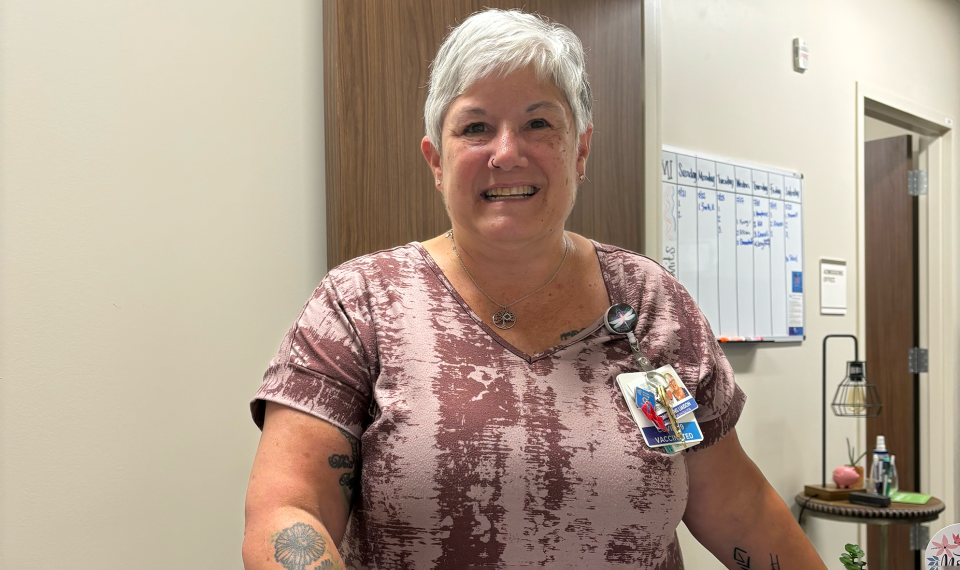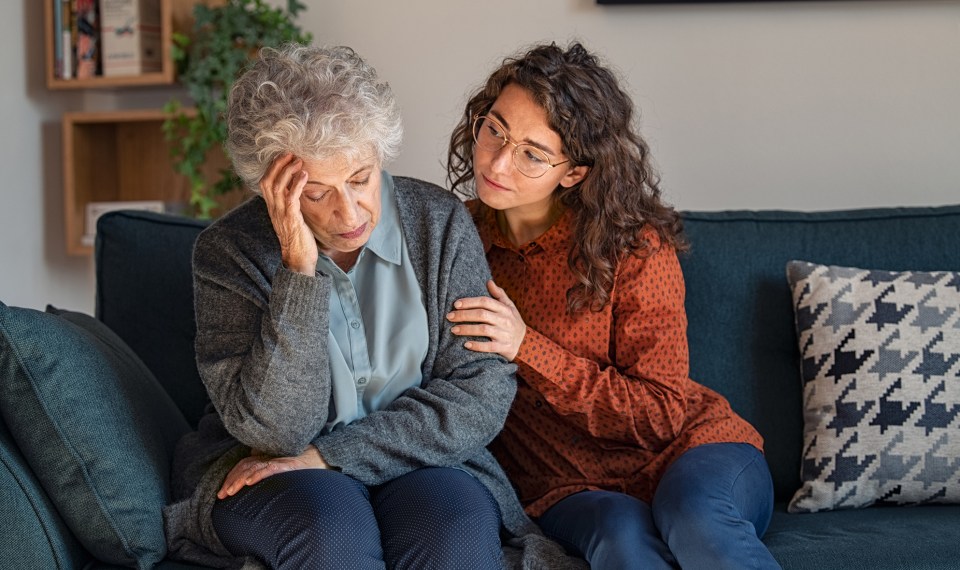When Lisa Newhall suffered a stroke more than five years ago, her recovery options were limited. Though her ability to perform daily tasks was greatly impacted, she opted to go home and seek outpatient rehabilitation to help in her recovery.
A resident of Little River, South Carolina, Newhall said she was unfamiliar with the existing rehabilitation hospitals in her area at the time, and Encompass Health had yet to open a location in her area.
Now, Newhall is an admissions liaison at Tidelands Health Rehabilitation Hospital, an affiliate of Encompass Health, which opened to patients in 2019. Helping admit patients and serving on the hospital’s stroke committee, she sees first-hand how inpatient rehabilitation could have helped in her recovery.
“I’ve had three strokes, and the last one was the worst,” she said. “Encompass Health was not open here yet, so I did three months of outpatient therapy. I think it would have been very beneficial to have had inpatient therapy to help me regain my independence.”
Newhall now shares her experience with other stroke survivors, advocating for the level of care provided at Encompass Health rehabilitation hospitals. She has even helped start a stroke support group at the Tidelands location, so survivors like her can share their experience with others recovering from stroke.
A Loss of Independence
Before Newhall’s third stroke, she was fully independent, working full time and living on her own. The first two strokes she had were relatively small, but the third was significant. She remembers driving in her car when it occurred.
“I didn’t feel bad, but my tongue felt funny,” she recalled. “I kept driving, but probably shouldn’t have. When I got to where I was going, someone looked at me and said, ‘you’re having a stroke.'”
Newhall was in the ICU for a week. Her right-sided stroke left her with weakness in the left side of her body. “I couldn’t drive; I couldn’t go up and down stairs,” she recalled. “It was a really big change for me and my family. I had to depend on them a lot, which was a change from being able to do everything myself.”
She was only receiving outpatient therapy three times a week and had to rely on friends and family to get her there.
Getting Back to Her Life
Prior to her stroke, Newhall worked in healthcare. While she wanted to continue in the field, she knew caring for patients would be challenging when she was still recovering from her stroke.
She took on a new role as a unit secretary, and then when Encompass Health Tidelands opened to patients, she transitioned there to her current role as an admissions liaison. After a short time at the rehabilitation hospital, she realized the advantages to stroke recovery in that setting.
First of all, she said, she would have had additional time in a hospital setting with round-the-clock nursing care and wouldn’t have had to rely so heavily on her family. Second, the amount of therapy she would have received was so much greater than what she was receiving in outpatient. In the inpatient rehabilitation setting, patients receive three hours of therapy a day, five days a week from at least two of three therapies: physical, occupational and speech.
“After that initial shock of going from being independent to being dependent, it would have been good to have that,” Newhall said. “Being in the inpatient setting gives you that time to settle in and learn how to do the new normal. We have a great team here to help with that.”
The average length of stay in an inpatient rehabilitation hospital is around two weeks.
Advocating for Rehabilitation
Knowing what she knows now, Newhall has become an advocate for inpatient rehabilitation for stroke survivors. She is quick to share her story with others.
She now helps lead a stroke support group at Encompass Health Tidelands. The best advice she can give those attending: listen to your therapists, and be patient.
“Take advantage of the time you have here and ask all the questions,” she advised. “Listen to what your therapists say. Work hard while you’re here, and don’t give up.”
The content of this site is for informational purposes only and should not be taken as professional medical advice. Always seek the advice of your physician or other qualified healthcare provider with any questions you may have regarding any medical conditions or treatments.



